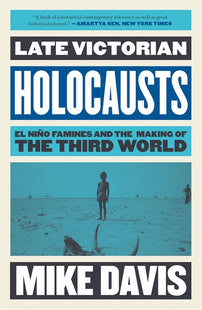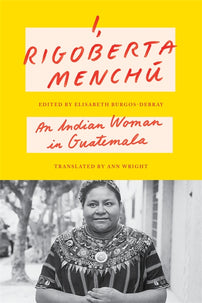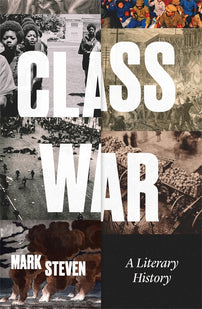Sowing Seeds of Change, Empire be Damned
Frantz Fanon believed in the power and potential peasants have to change the world. 60 years after the English release of his ground-breaking text The Wretched of the Earth––and to mark this year’s International Day of Peasant Struggle––Levi Gahman and Johannah-Rae Reyes offer a three-part commentary on why we should too.

The Peasantry as a Revolutionary Force
“It is clear that in the colonial countries the peasants alone are revolutionary, for they have nothing to lose and everything to gain.” Frantz Fanon, The Wretched of the Earth, p.23
For Frantz Fanon, the peasantry of the Global South were both a revolutionary force and rich source of emancipatory potential. And while the epigraph above, taken from his incendiary account of dehumanizing effects of colonization The Wretched of the Earth, is admittedly an oversimplification, given that the peasantry is by no means a monolith, it remains a useful and illuminating one for contemporary struggles.
Fanon, a psychiatrist and revolutionary intellectual, was born on the French colonial island of Martinique in the Caribbean in 1925, and went on to earn his stripes fighting fascists and white supremacist settlers in the torrid crucible that was Third World liberation struggles. In so doing, he contended that decolonisation must involve a complete repudiation of the lasting “Manichaean” legacies and abusive economic relations––not to mention pernicious socio-cultural and psycho-affective consequences––of colonial-capitalism. For Fanon, freedom was equally a material and spiritual project. It mandated a total overhaul of the Western ways in which we produce, distribute, govern, read realities, and relate to one another and the world.
During his time opposing imperialist occupiers and aiding the rebel wounded in Africa, chiefly in Algeria, it was among peasant communities that Fanon found the communal values, egalitarian economics, and horizontal forms of participatory governance he was searching for. Much has changed both historically and economically in the decades since, but in our contemporary moment, we can see something similar at work in the Zapatista’s ongoing construction of autonomy in Chiapas, Mexico, as well as in the principles and praxis of the global social movement La Via Campesina (LVC).

We need only look at the EZLN’s guerrilla offensive and their declaration of war “against neoliberalism, for humanity,” called shortly after the infamous proclamation of the “end of history,” for proof of what Fanon realised about the radical possibilities engendered by peasant societies and their pluralistic ways of being. What we see if here is the disalienation of land and life, attributes vital for all struggles if we are ever to realise prospect of overthrowing or abolishing the colonial order of liberal-capitalist modernity.
Not dissimilar to the Zapatista’s poetic appeal to build “a world where many worlds fit,” guided by the socialist and selfless tenet of “everything for everyone, nothing for us,” Fanon understood that the social transformation and revolutionary humanism he was dreaming of needed to be defined by a commitment to democracy, justice, intersectionality, and the mutual recognition of dignity. Here, let us not forget Fanon’s clarion call to end patriarchal domination: “Women shall be given equal importance to men, not only in the articles of the constitution, but in daily life, at the factory, in the schools, and in assemblies.”
Reckoning with racial hierarchies and the socio-spatial divisions of a “compartmentalised world” in which specific populations are targeted for negative racialisation and condemned as wretched “non-beings”––and where certain spaces are judged profane and forsaken as sacrifice zones––was also central to Fanon’s agenda. To rectify these wrongs would mandate new political subjects, subjectivities, and manifestations of collective mobilising that are as radical and militant in expression as they are inclusive and humble in character.
[book-strip index="4"]
Modern states, multilateral organisations, liberal worldviews, and even individual acts of disobedience, no matter how well-intentioned or progressive they purport to be, will not get us free, Fanon maintained. For him, managerialist technocrats, self-promoting intellectuals, and “altruistic” philanthropists represent at best thecalculating and conceited custodians of an unjust status quo. At worst, they are counter-revolutionary “betrayers” masquerading as centrist moderates who are, in actuality, merchants of structural violence and organised abandonment.
On this, Fanon rightly identifies nationalism as a trap and argued that decolonisation would demand disciplined organising, direct action, and collective self-defence. The ruling classes of colonial modernity and indifferent beneficiaries and bystanders of bourgeois society will not give up their profits, police forces, prisons, plantations, private property, and monopolies on repressive force all that easily.
Fanon’s fundamental assessment and trenchant message from The Wretched of the Earth rings true to this day; the subjugated masses must get united and defeat their oppressors to regain control of their destinies and––when considering the current climate crisis at hand––the fate of the planet.
In considering Fanon’s desire for repairing the colonial aftermath and realising self-determined futures “from below,” a pivotal question surfaces: is it possible to construct viable alternatives and live meaningful lives beyond the state, market, patriarchy, and liberal individualism? For Fanon, it was, and it was to the peasantry he looked to demonstrate it.

La Via Campesina: The Way of the Peasant
“The essence of revolution is not the struggle for bread; it is the struggle for human dignity. Certainly this includes bread.” Frantz Fanon, A Dying Colonialism, p. 12
Peasant communities have long been exposed to dehumanising exploitation at the hands of imperial powers and capitalist global value chains. The dispossession and violence they face are frequently carried out in the name of “development,” “progress, and “growth.” It is no surprise that “hunger hotspots” happen to be concentrated in the Global South, where countries continue to suffer from the persistent repercussions of colonial extraction and foreign interference. Historically, however, grassroots peasant movements from all corners of the globe have mobilised to resist the destructive advance of capital, theprivatisation of the commons, and the authoritarianism of the state.
From Gerrard Winstanley’s Diggers sabotaging enclosures of the English countryside and the Afrodescendant peasants constituting the lifeblood of the Haitian Revolution, to Adivasi insurgents opposing bonded labour in India and Mau Mau rebels in Kenya battling the British Crown––peasant movements have a time-honoured record of laying siege to empire, standing their ground, and confronting the “capitalist hydra.”
La Via Campesina is a case in point. Currently the world’s largest social movement, composed of 200 million people in over 80 countries, it was officially established in 1993, although it began slightly earlier, the LVC is a transnational autonomous movement comprised of peasants, pastoralists, smallholder farmers, artisanal fisherfolk, Indigenous people, rural landworkers, and dissident agrarian women who are engaged in struggles for territory, community, and autonomy.
Despite its pejorative connotations in bourgeois respectability politics, the term “peasant” is not a dirty word––although it can be rather difficult to define. In their illustrated version of the Declaration on the Rights of Peasants (UNDROP), LVC notes:
A peasant is any person who engages or who seeks to engage alone, or in association with others or as a community, in small-scale agricultural production for subsistence and/or for the market, and who relies significantly, though not necessarily exclusively, on family or household labour and other non-monetized ways of organising labour, and who has a special dependency on and attachment to the land.
LVC goes on to clarify that the term also applies to:
Any person engaged in artisanal or small-scale agriculture, crop planting, livestock raising, pastoralism, fishing, forestry, hunting or gathering, and handicrafts related to agriculture or a related occupation in a rural area, as well as dependent family members of peasants.
Indigenous peoples and local communities working on the land, transhumant, nomadic and semi-nomadic communities, and the landless, engaged in the above-mentioned activities.
Hired workers, including all migrant workers regardless of their migration status, and seasonal workers, on plantations, agricultural farms, forests, and farms in aquaculture and in agro-industrial enterprises.

Markedly, LVC is both explicitly and unapologetically anti-capitalist. Distinct practices found across varying member organisations include communal land holdings and moral economies. It is not unusual for peasant societies to have long-standing cultures of collective ownership, complex tenure, and reciprocal exchange. Such traditions are typically rooted in solidarity, voluntary cooperation, environmental stewardship, and an abiding reverence for “Mother Earth.” Forms of mutuality like these undermine the types of commoditisation and alienation that are endemic to capitalist logics and industrial modes of production, which reify land and labour as expendable objects if not disposable merchandise to be bought and sold.
[book-strip index="2"]
Other key strategies LVC employs are political education, mass mobilisation, and participatory democracy. The movement believes that power, influence, and decision-making must be shifted away from concentrated private capital, international financial institutions, and professional bureaucrats to local communities and grassroots collectives. In turn, LVC has spearheaded a multitude of campaigns and advocacy efforts aimed at local, national, and international levels to promote agrarian reform, small-scale agriculture, the protection of seed diversity, and the eradication of gender-based violence and so-called “free trade” deals, which do nothing other than stack the deck for transnational corporations.
In addition, one oft-overlooked aspect of LVC is how they maintain solidarity with displaced peasants in the city. The movement recognises that deracinated rural workers regularly must migrate across borders or into urban spaces upon being uprooted and having their livelihood strategies and lands seized, privatised, or poisoned for the purposes of commercial extraction, chemical monoculture, large-scale ranching, development mega-projects, renewable energy schemes, “green” ecotourism ventures, and even conservation efforts.
Taken in total, LVC is one of the most diverse, democratic, and innovative social movements defying accumulation by dispossession in the world. Its members are at once decommodifying and re-sacralising nature, i.e. making the soil sacred again, while securing conditions for future generations to flourish. In practice and politics, the decentralised international syndicate represents a powerful substitute to the prevailing corporate food regime and neoliberalism’s noxious mantra of “growth-at-all-costs.” Crucially, LVC is also the driving force behind advances in and struggles for food sovereignty, agroecology, and “popular peasant feminism.”
Food Sovereignty, Agroecology, Popular Peasant Feminism
“The masses battle with the same poverty, wrestle with the same age-old gestures, and delineate what we could call the geography of hunger with their shrunken bellies.” Frantz Fanon, The Wretched of the Earth, p. 23
Food sovereignty is the right of people to healthy and culturally appropriate food produced through ecologically sound and sustainable methods, as well as their right to define their own local and traditional food and agricultural systems. Its raison d'etre is to empower grassroots communities and rural landworkers to protect their unique heritages and take control of the production, distribution, and consumption of food, rather than be placed at the mercy of market forces, big business, and predatory creditors.
The concept arose primarily out of LVC’s efforts in the Global South and was a response to neoliberal globalisation, the instrumentalism of the Green Revolution, and the deleterious upshots corporate monopolies have had on the environment, societies, and humanity writ large (farmer suicides, for example). Contrast this with peasant-led farming customs, which are characterised by the use of non-GMO non-patented seed varieties, organic fertilisers, intercropping, shifting cultivation, and cultural-spiritual connections to forests, waterways, and territories. Additional agroecological techniques include rotating crops, integrating livestock alongside polyculture, eliminating chemical inputs, and building soil health through companion planting, composting, and low-impact forms of regenerative land management, to name only a few.
[book-strip index="3"]
At its core, agroecology is a political and holistic yet versatile and contextualised mode of food production that stresses the inextricable links between economic, biological, social, and cultural factors in agriculture. It endorses dynamic farming practices designed to work with, rather than against, natural processes. Philosophically, agroecology emphasises interdependence and dignity in its orientation towards sustaining the life of both ecosystems and communities.

In this vein, LVC’s approach to agroecology foregrounds and incorporates ancestral wisdom, collective memory, kinship ties, youth futures, and spiritual ceremony (misticas). Combining aspects of cosmovision, creative expression, intergenerationality, and non-imposing religious belief into the day-to-day work of movement-building and agricultural production safeguards against the debilitating kinds of estrangement and atomisation that are intrinsic features of capitalist economies, waged labour, and competitive individualism.
Agroecology further relies upon ever-evolving Indigenous and traditional knowledges, in addition to democratic procedures and horizontal methods of education. Of these, the direct participation, political agency, and critical acumen of local farmers, landworkers, and villagers in decision-making processes related to the production and distribution of food are vital components. These ideas are crystallised in LVC’s promotion and practice of campesina-a-campesina (farmer-to-farmer) learning, popular-political education training schools, and their allegiance to diálogo de saberes (dialogue amongst knowledges).
Notably, for LVC, agroecology is a radical bottom-up process and science that belongs to peasants themselves. Agroecology, LVC shrewdly argues, must be defended. It is a contested concept and terrain of ideological struggle that is neither immune to elite capture nor safe from commercial appropriation; when we come across “agroecology,” we must critically and carefully consider the source. In short: don’t believe the corporate hype, and trust only liberatory social movements. Agroecology must be protected from its dilution, domestication, and greenwashing by free-market sycophants, out-of-touch experts, and cunning NGOs.
LVC equally maintains that food systems are intimately tied to issues of gender and power. Across subsistence-based agrarian societies, women have historically performed the work of growing and harvesting food, saving native and creole seeds, and maintaining harmonious socio-ecological relationships. Moreover, they are often the primary food producers and providers of nutrition for households and communities. Despite this, they remain disparately affected by food insecurity, poverty, landlessness, and policy discrimination.
[book-strip index="1"]
The modern corporate food regime is as societally injurious as it is climatically untenable. It is exacerbating deforestation and desertification, destroying biodiversity and soils, and intensifying climate change, disaster risk, and ecosystem collapse––all of which disproportionately impact rural women and girls. Food sovereignty is consequently both a matter of social justice and feminist praxis for LVC. Accordingly, (re)valuing social reproduction has become an integral part of the movement’s efforts to end the systemic marginalisation women experience under global capitalism.
Regarding broader contributions to the cause of gender justice, LVC activists are co-creating an emergent form of “popular peasant feminism,” which views grassroots working women and land defenders as the point sources and protagonists of transformative change. This variant of rural feminism stands in stark contrast to the neoliberal urban-centric “lean in” versions being proliferated by self-ascribed “prestigious” institutions and the professional-managerial class. Clearly, it is not credentialed careerists, ambitious politicians, and entrepreneurial “girl bosses” who are getting it done––it is peasant women who are.
In sum, LVC views agroecology as equally a science, a social movement, and a repertoire of technical-political practices that can put us on a path to a more sustainable, just, and life-affirming food system. It is providing tangible ways of achieving autonomy and self-sufficiency while simultaneously illustrating how peasant approaches to agriculture can successfully address several of the planet’s most pressing global challenges. In conjunction, the constellation of food sovereignty, agroecology, and popular peasant feminism is proving to be a potent remedy for mounting crises related to hunger, ill-health, malnutrition, gender inequity, environmental degradation, climate change, and economic inequality.

Globalising the Struggle, Solidarity, and Hope
“Yes, everyone must be involved in the struggle for the sake of common salvation.” Frantz Fanon, The Wretched of the Earth, p. 140
The challenges posed by agrarian struggles to corporate agro-imperialism and authoritarian-nationalist governments move well beyond mere critique, theory, and interpretations of the world. As Fanon identified, the community-grounded and politically-driven initiatives of local peasantries provide humanity with concrete resolutions to enduring colonial orthodoxies and the innumerable fallouts of virulent neoliberal development. Indeed, amid the escalating anxieties and impending doom owed to capitalism’s myriad contradictions, catastrophes, and humiliations, peasant movements proffer us much-needed reason for optimism and hope.
Regrettably, such anti-capitalist efforts and uprisings are not without consequence. Grassroots resistance continues to be subjected to ruthless forms of state-sanctioned violence and retaliation, as well as corporate-sponsored acts of reprisal and slander. Here, it should not be lost on us that one of the deadliest vocations on the planet is being an environmental defender. Despite this, peasant activists continue to take to the frontlines to storm the racist and extractivist powers at be.
With respect to imagining alternatives, building diverse alliances, and weaving better worlds, peasant struggles are showing us how collective ethics and ways of relating to each other can be based in responsibility, camaraderie, and care––as well as preserve ecological wellbeing and planetary health. Likewise, via communal social relations, direct democracy, and shared emancipatory politics, movements like LVC are subverting the hierarchical state, patriarchal capitalism, and the hegemony and homogenising effects of (neo)liberal ideology.
Given the evidence, it is obvious that there is a great deal we can learn from peasants about “turning over a new leaf” and “setting afoot a new humanity,” as Fanon would say.
In his final days, and as a last generous act to us, Frantz Fanon made a point of recognising and paying respect to the revolutionary potential, principles, and praxis of the peasantry. If we are concerned with collective liberation, and seriously devoted to breathing life into sustainable and dignified futures, we, like Fanon, should take a lesson from and salute “the way of the peasant.”
Levi Gahman is a Reader at the University of Liverpool and affiliate faculty with the University of the West Indies focusing on social movements, emancipatory praxis, political education, and participatory research. He is author of Land, God, & Guns (Zed Books), Building Better Worlds (Bristol University Press), and co-editor of the anti-corporate journal Interface.
Johannah-Rae Reyes is a Caribbean activist and organiser with a geography degree from the University of the West Indies. She is currently a Project and Community Outreach Associate with CAISO. She is also a sign language interpreter working with several CSOs, including the Deaf Empowerment and Advancement Foundation and the Alliance for Justice and Diversity.
All the artwork that appears in this piece was created by Filipino activist-artist Federico “Boy” Dominguez and is being used with permission courtesy of the Journal of Peasant Studies’ “Agrarian Conversations” website.



